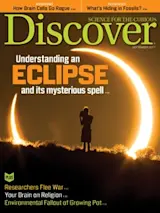My Greek Orthodox grandparents’ house had Byzantine icons of Jesus on virtually every wall. It’s not that they were die-hard religious people; they seldom went to church. But they did have religious rituals they stuck to. Burning incense in the house every Sunday was one. Bringing home koliva (a delicious dish of sweetened boiled wheat) after special services was another. They also insisted that if I wanted to be in God’s good books, I should make the sign of the cross every time I walked by a church or heard the church bell ring. And if I saw a priest on the streets? I should spring over to kiss his hand.
But as I got older, I learned about science, philosophy, logic and reason. I don’t fancy God as a long-bearded, old man with wizardlike powers anymore. And heaven and hell seem an oversimplified reward-and-punishment scheme.
There’s a catch, though. ...















